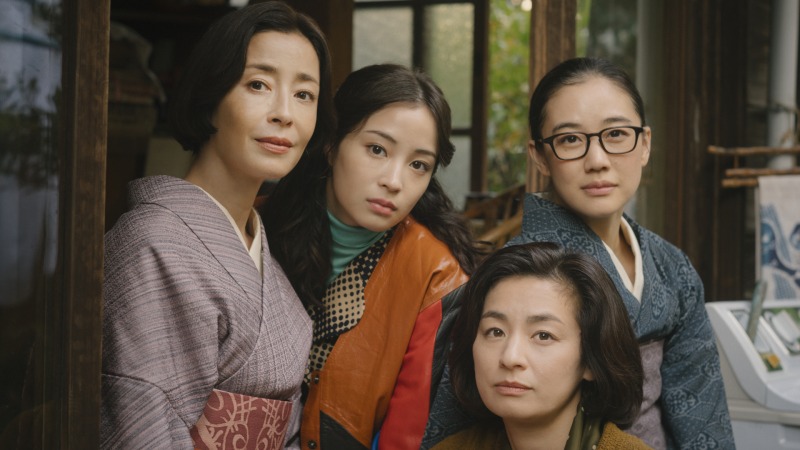ICYMI: Asura Is A Must-Watch Family Drama Tucked Away On Netflix
Photo courtesy of Netflix
We’re only two months into the year, but there’s already been a bounty of great television: Severance, Yellowjackets, The Pitt, Mo, Common Side Effects, and White Lotus, just to name a few. Considering this opening barrage, it’s no surprise that certain series have gotten lost in the shuffle, and it’s even less surprising when it comes to Asura, a quiet Japanese language drama even more silently released by Netflix. It’s quite a shame that it’s gone largely unnoticed by wider audiences because this tale of family is masterfully crafted, boasting a rich cast, nuanced portrayals of gender roles, and delicate direction courtesy of one of the most thoughtful filmmakers around, Hirokazu Kore-eda.
Based on Kuniko Mukōda’s TV series Ashura no Gotoku, it follows the daily life of four sisters living in 1979 Japan as they learn that their father, Kotaro Takezawa (Jun Kunimura), has been cheating on their mother for years. While several of the sisters try to brush off this revelation at first, deflecting or hiding from the truth, over the following months, this scandal intersects with each of their lives, calling to attention the unfair expectations they face in a patriarchal society.
Of the siblings, there’s Takiko (Yū Aoi), a stern librarian who discovered the affair after hiring a private investigator, Makiko (Machiko Ono), a housewife who hopes that ignoring the news will make it go away, Tsunako (Rie Miyazawa), the oldest sister who takes a somewhat wishy-washy position due to her own complicated love life, and Sakiko (Suzu Hirose), the youngest who blames their mother for being cheated on because she’s “too square.” As they struggle to decide if they should tell their mom, Fuji (Keiko Matsuzaka), they each face circumstances that recontextualize this situation, forcing them to reckon with their beliefs and relationships with one another.
While it takes a few episodes to kick into gear (and even then, it’s more a slow cruise than an all-out drag race), everything falls into place by the third episode or so as these characters become increasingly complex. Every member of the Takezawa family has flaws and redeeming qualities, even if the bad outweighs the good for some. For instance, while Sakiko is needlessly mean to her sister Takiko, whom she berates for being single, she eventually goes through tough times that cast her behavior in a different light. Meanwhile, Takiko struggles with her lack of self-confidence over the course of a prolonged meet-cute as she struggles to balance her desire for independence against other wants.
These sisters bounce off one another the way that only family can, poking at old wounds and confiding about new ones as these actors pull us into the nitty-gritty of these households. Tsunako and Makiko, the two oldest, have a particularly well-portrayed relationship, and Rie Miyazawa and Machiko Ono get across their long shared history. Even the father, Kotaro, is given depth thanks to Jun Kunimura’s stolid take on the character; he wavers between shamelessly repeating his mistakes and frankly admitting his own unfairness.
-

-

-

-

-

-

-

-

-

-

-

-

-

-

-

-

-

-

-

-

-

-

-

-

-

-

-

-

-

-

-

-

-

-

-

-

-

-

-

-








































